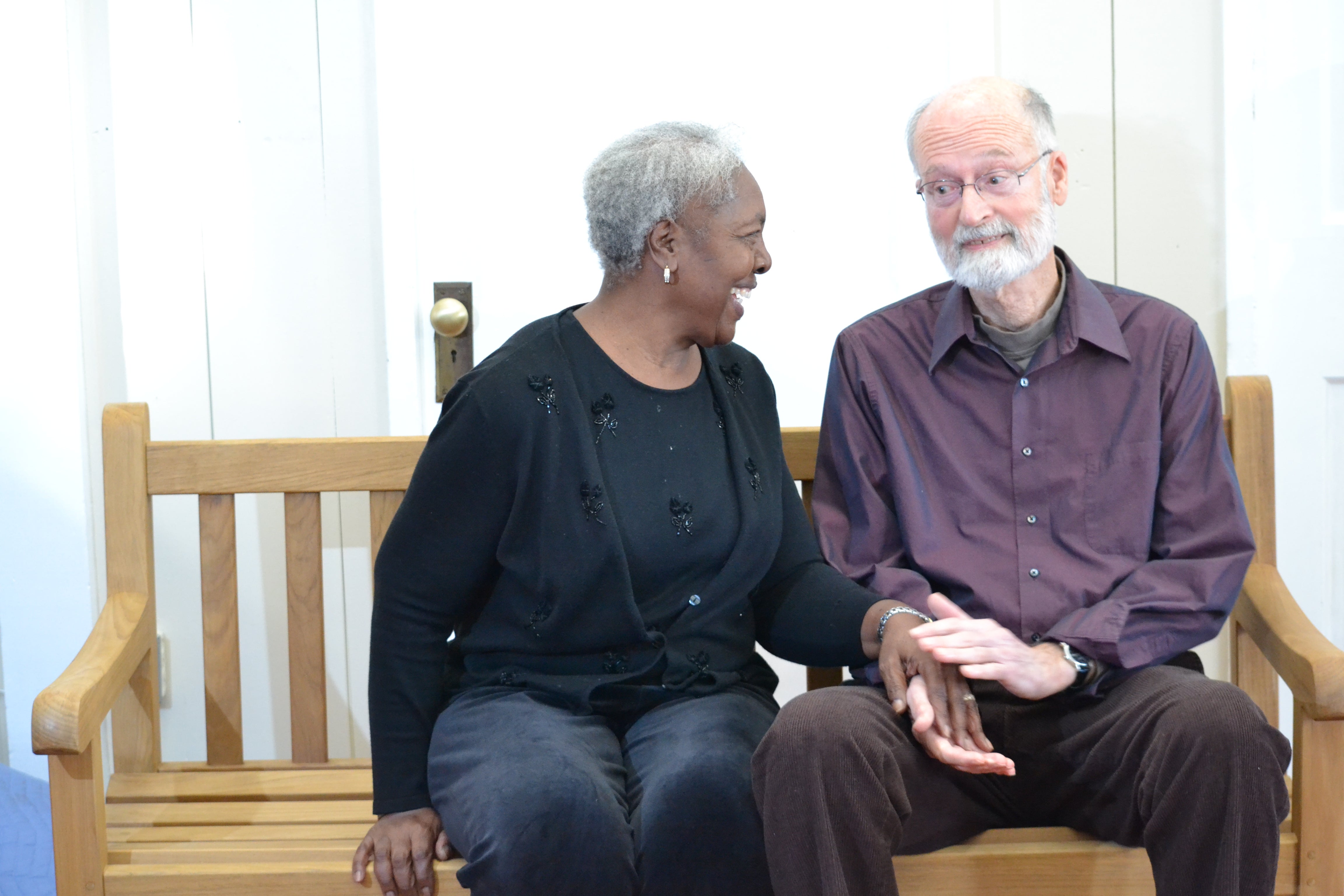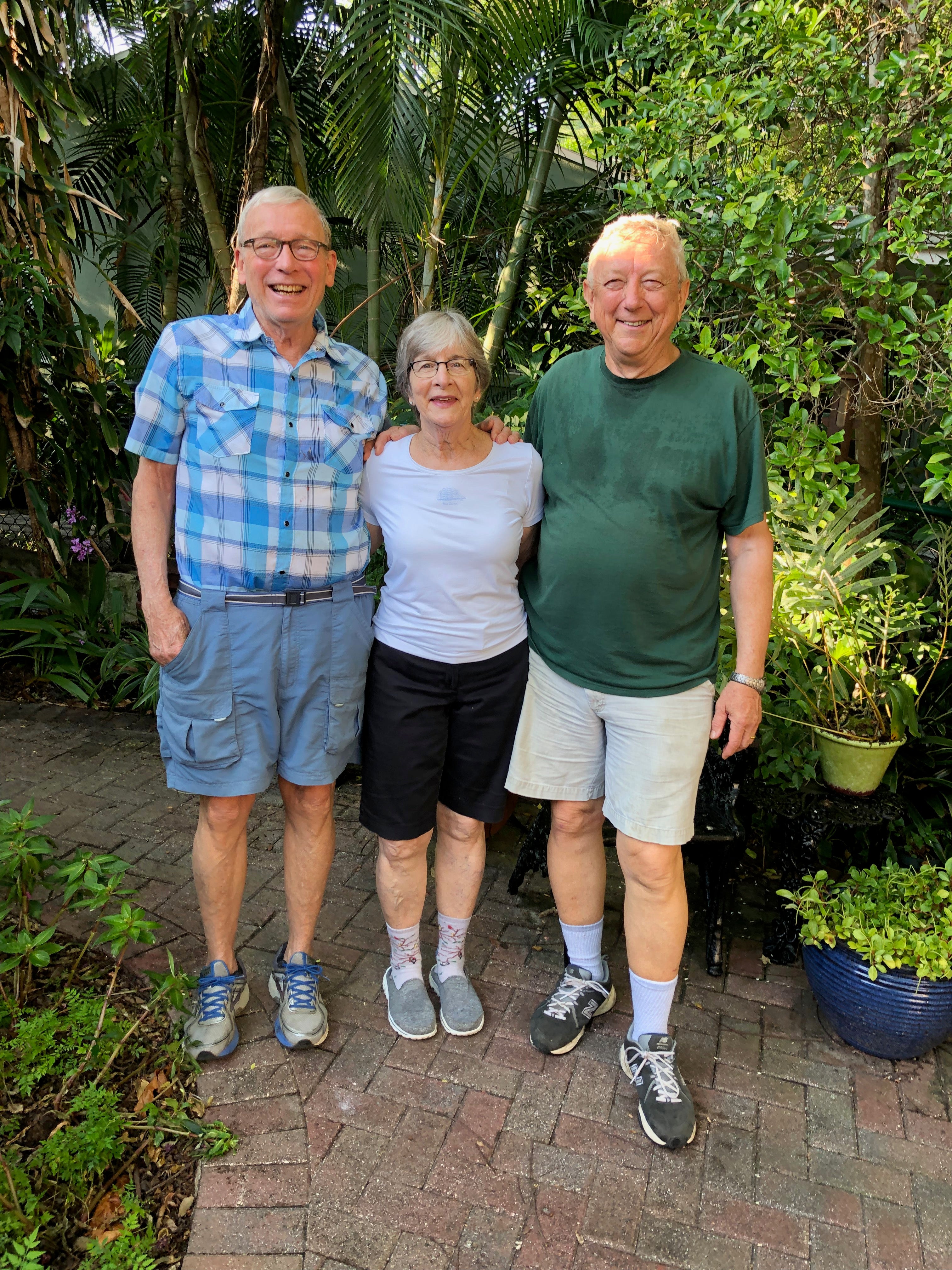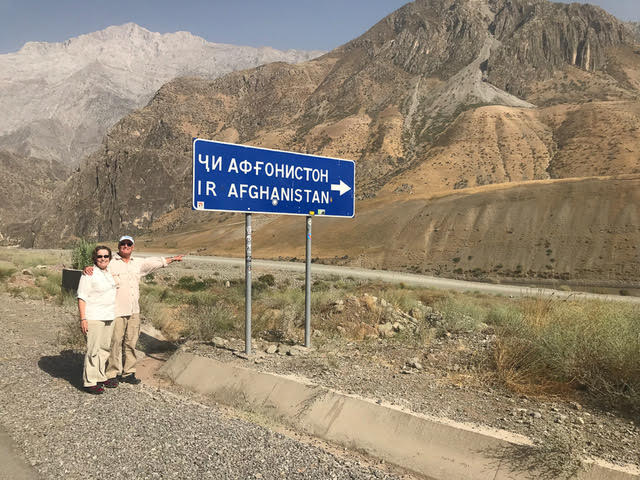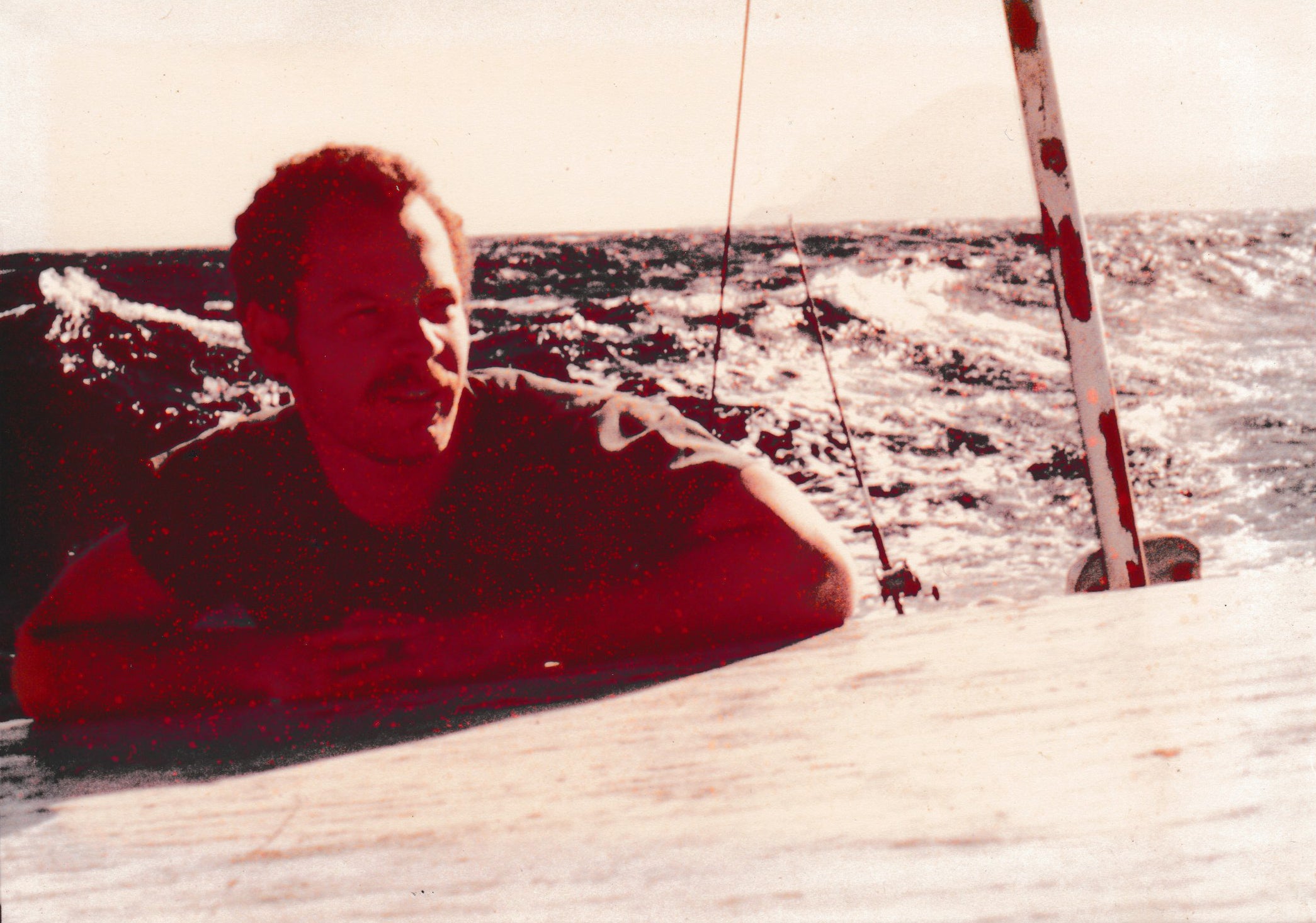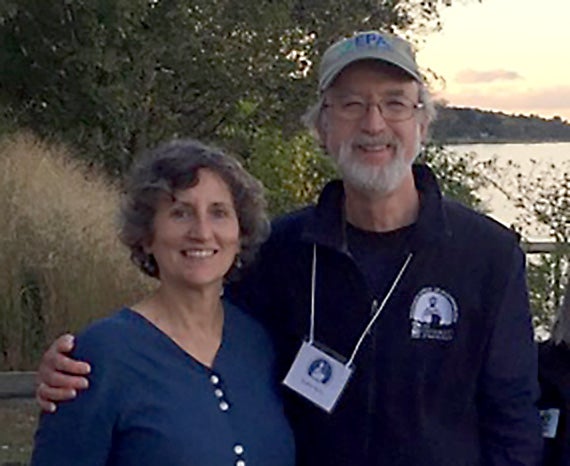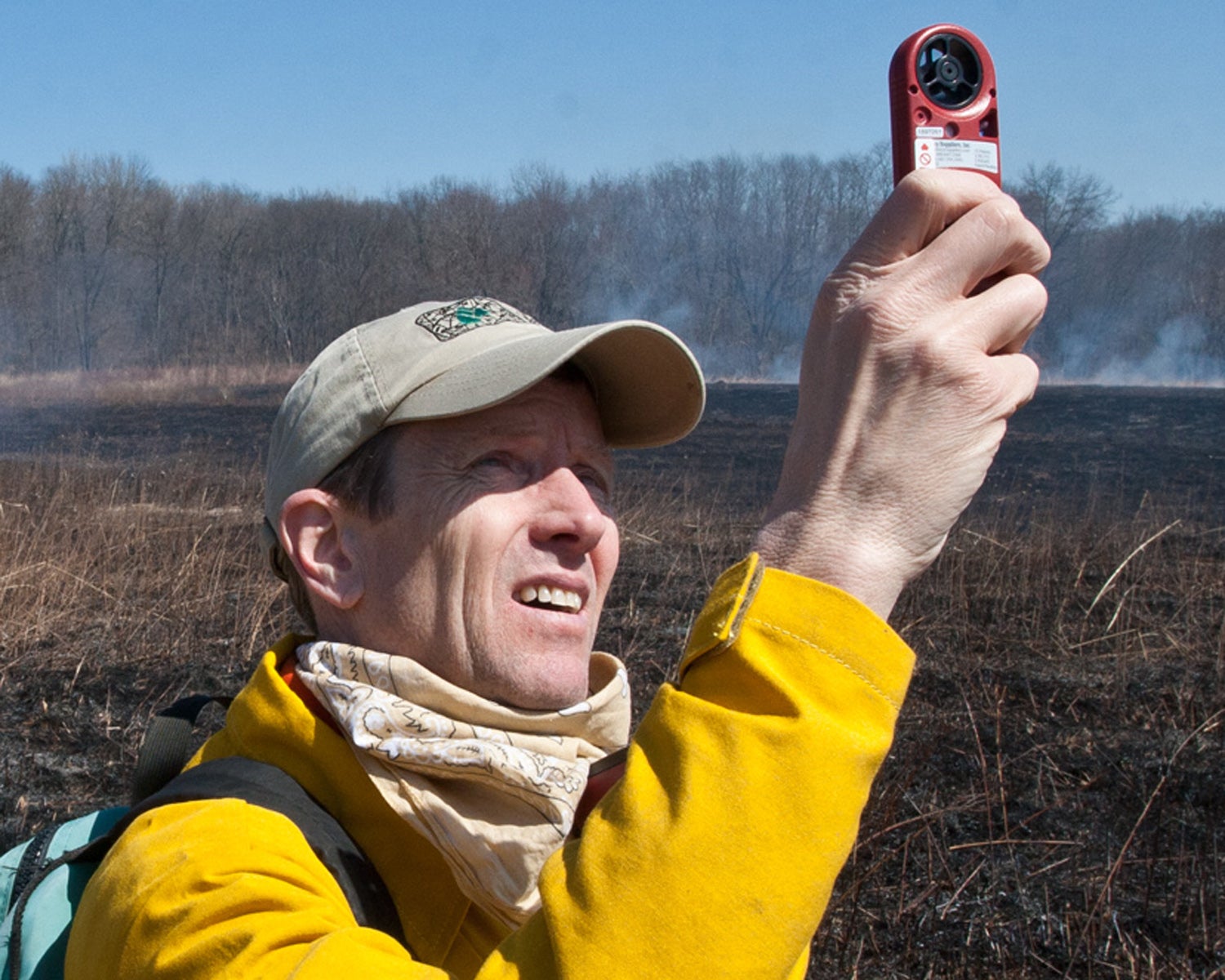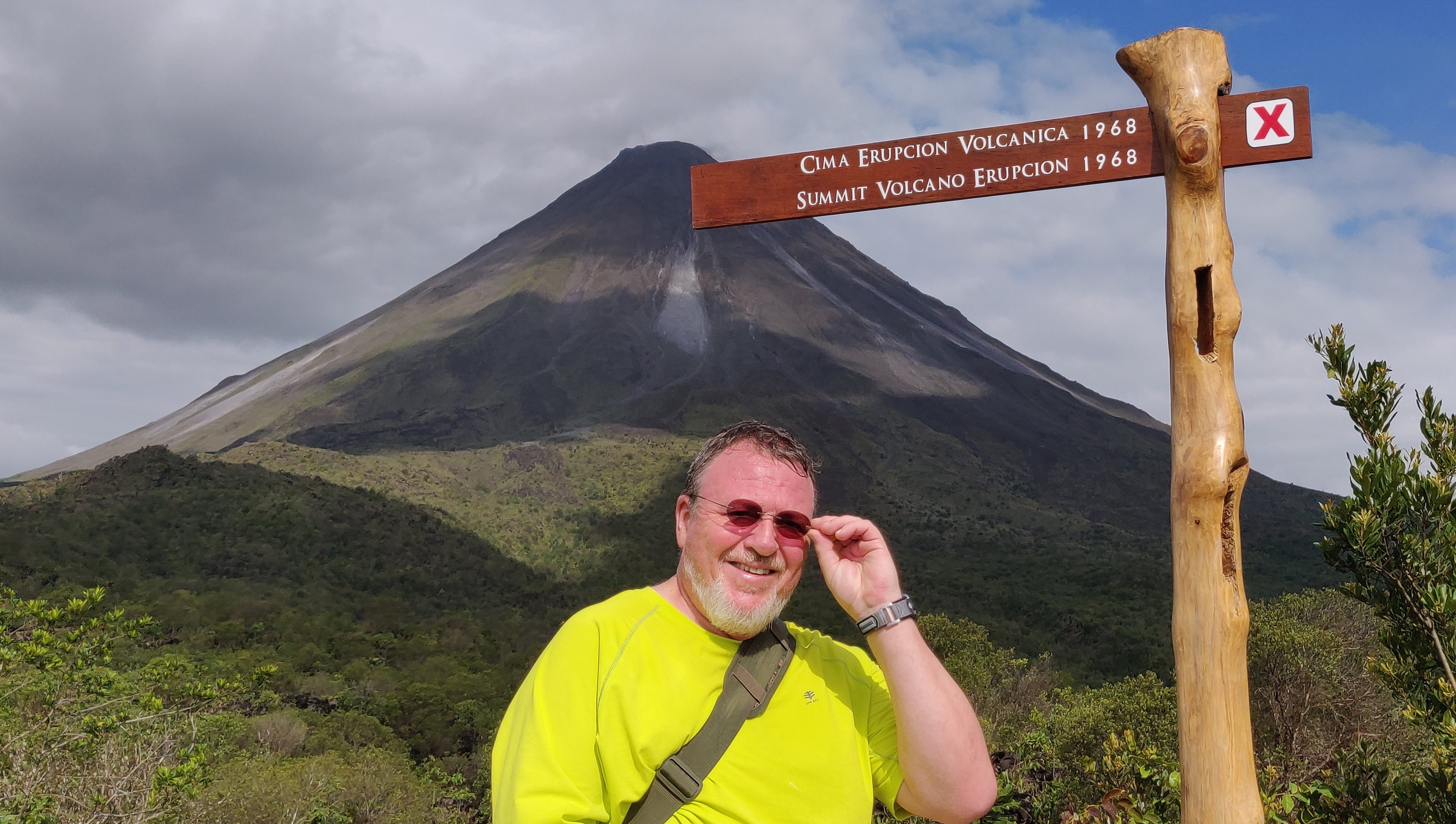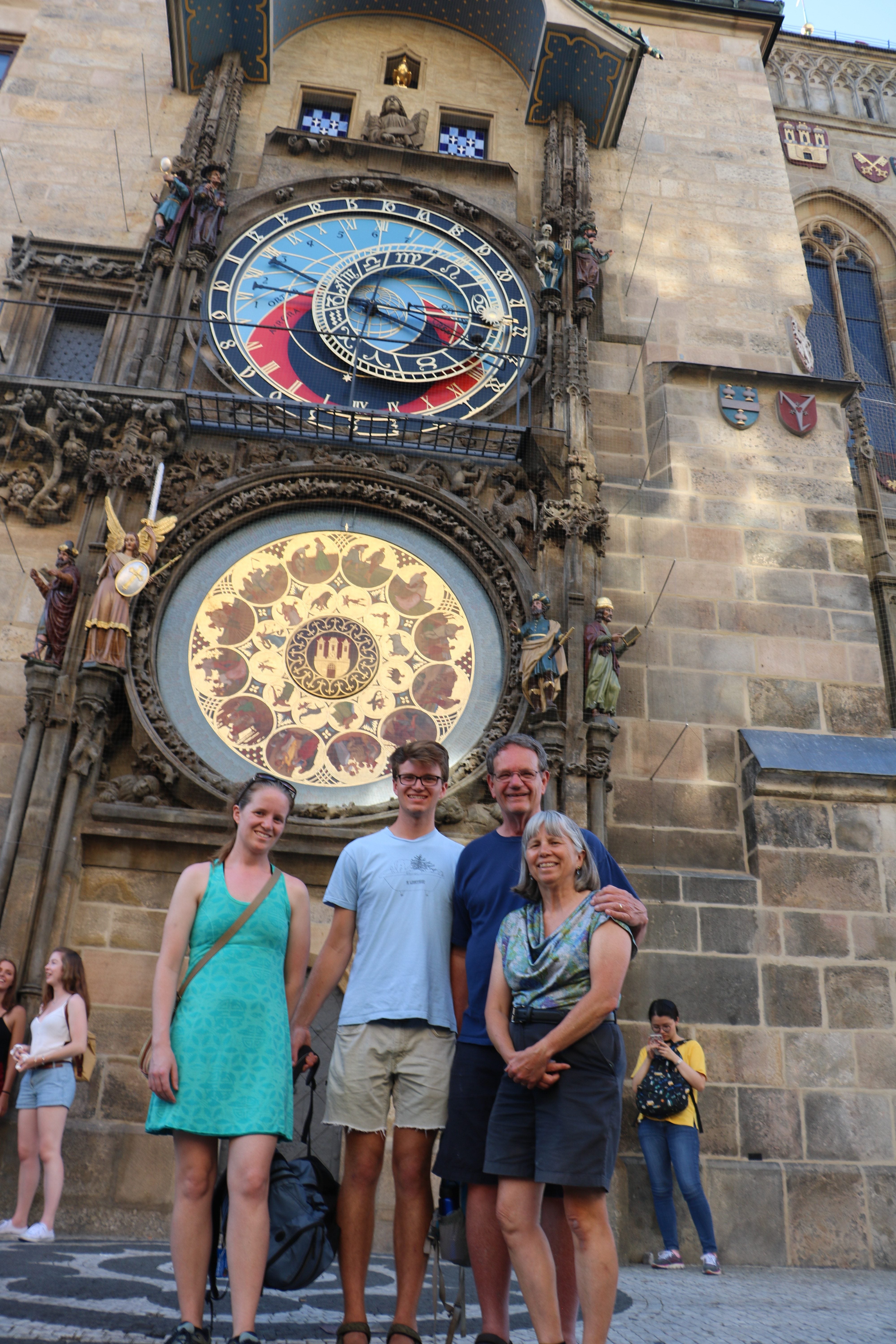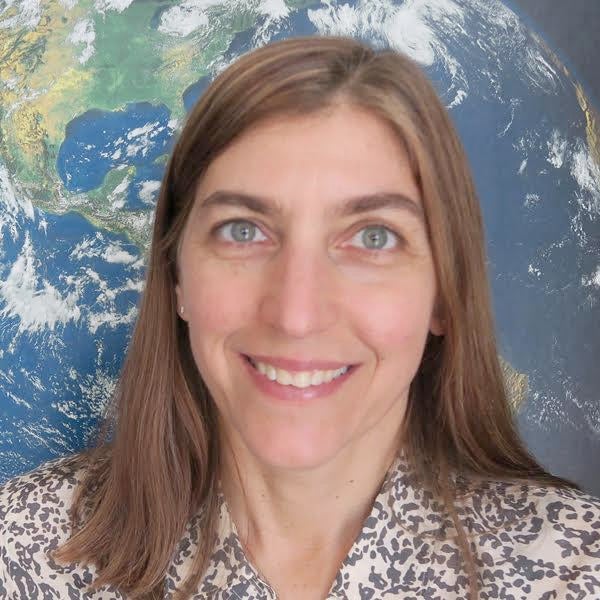Updates from old friends and dear readers (Yes, please do, drop us a line.…)
1970s | 1980s | 1990s | 2000s | 2010s | In Memorium
1970s
Gerard (Gerry) R. Miller (M.S. 1970, Ph.D. 1974) is retired and continues to reside in Kansas.
Steve Rebach (Ph.D. 1970) writes, “At the end of 1999, I retired from the University of Maryland Eastern Shore (UMES) after 27 years, and 31 years in the University of Maryland System which included being director of the UMES Campus Graduate Program in Marine, Estuarine, and Environmental Sciences, and several years as the chairman of the Department of Natural Sciences. In January 2000, I became associate director of the North Carolina Sea Grant Program in Raleigh, N.C. In that position I directed its approximately $5 million grants program through the auspices of North Carolina State University. I retired from the Sea Grant Program at the end of 2013, but I remain active in the environmental arena. I helped create and establish the Carolina Wetlands Association (www.carolinawetlands.org) as its founding vice president (2015-2017) and now serve on its Policy Committee. I am having lots of fun as a photographer (see www.steverebach.com), and my work reflects my background in environmental science. I exhibit my work around my hometown of Cary, N.C. I also travel extensively with my long-time partner, Melinda Baran. 2020 is the 50th anniversary of my Ph.D. from GSO and I’m looking forward to seeing the campus again. Although I received my degree when the R/V Trident was still the ship du jour, this is my first submission to Aboard GSO.”
John W. Farrington (Ph.D. 1972) who is dean emeritus of the Woods Hole Oceanographic Institution (WHOI), writes, “50 years ago (September, 1968), I enrolled at GSO for Ph.D. studies with a new assistant professor at that time—James G. Quinn—after an M.S. in Chemistry at what is now UMass-Dartmouth. The education, advising and mentoring I received was excellent and a firm foundation upon which I built a career with the help of many, especially my wife Shirley. Shirley and I celebrated our 52nd wedding anniversary this past May. I spend time volunteering for various boards and committees, for professional scientific societies, academic organizations and a local environmental group. I write an occasional scientific paper every two years or so.”
Last year, Richard Earl Payne (Ph.D. 1972) retired from the board of his local land trust, The 300 Committee in Falmouth, Mass., but is still active on two committees. He also plays the flute in his local orchestra and gets in some chamber music.
Stephen Hale (M.S. 1974) retired from the Atlantic Ecology Division of the Environmental Protection Agency in Narragansett. His wife, Lynne Zeitlin Hale (M.S. 1975), is retired from The Nature Conservancy’s Global Marine Initiative. Stephen and Lynne report they are traveling a lot.
Kenneth R. Hinga (M.S. 1974, Ph.D. 1984) is retired but teaching environmental science and oceanography for Osher Lifelong Learning Institute (OLLI) programs at both American University and Johns Hopkins University. Ken has also been doing some consulting for the USDA Foreign Agricultural Service.
Allen C. Myers (Ph.D. 1974) is a minister, serving two churches in Maine: Isle au Haut and West Brooksville Congregational Church, both United Church of Christ. He is still restoring reed organs. He writes “I am trying unsuccessfully to slow down, but getting a hip replaced will do that (for a while).”
Retiring after 38 years of working in environmental consulting in Maryland, William A. Richkus (Ph.D. 1974) and his wife Sharon moved to Saint Petersburg, Fla. in 2017. He writes “Not knowing anyone in our new location, I reached out to a couple of friends from my graduate school days at GSO who I recalled had moved to Saint Petersburg after their graduation many years ago: Peter (Ph.D. 1971) and Susan (Ph.D. 1972) Betzer. As it turns out, they still live in a house that they bought soon after Peter took a position at the University of South Florida (USF), and that house is in walking distance from our new home. As Peter developed and expanded the marine program at USF, it became a magnet for a host of other GSO graduates (e.g, Norm Blake M.S. 1970, Ph.D. 1972, and Gabe Vargo Ph.D. 1974), and I’m told USF is still referred to as ‘GSO-South.’ Our friendship with Peter and Susie has blossomed and they have served as a springboard for us to learn about all the amenities of our new home area and many of our new neighbors. What a blessing to be able to rekindle old friendships from GSO graduate school days.”
David Schultz (Ph.D. 1974) writes, “I have retired from my cabinetmaking business and am working on the ‘honey-do’ list.”
James Yoder (M.S. 1974, Ph.D. 1979), GSO professor emeritus of oceanography and dean emeritus at WHOI, was named a 2018 Fellow by the American Association for the Advancement of Science. Jim was selected for his pioneering contributions to advancing modeling and remote sensing of marine ecosystems and for outstanding leadership in ocean sciences.
Sandra L Vargo (Ph.D. 1974) is retired as Assistant Director, Florida Institute of Oceanography, St. Petersburg.
Gabriel A. Vargo (Ph.D. 1976) keeps busy in retirement in St. Petersburg Fla., giving environmental education programs using birds of prey as assistants.
Peter H. Doering (M.S. 1976, Ph.D. 1981) recently retired from South Florida Water Management District. Peter and his wife Mary N. Worobec (Ph.D. 1982) have since moved backed to North Kingstown, R.I. They are excited to be living close enough to GSO to attend seminars and events, including the Harpoon Seminar.
Though he retired from the R.I. Department of Environmental Management in 2018, Christopher F. Deacutis (M.S. 1977, Ph.D. 1982) is still working with URI graduate students and faculty through an (unpaid) adjunct position in URI CELS Department of Fisheries, Animal and Veterinary science.
Richard Kerr (Ph.D. 1977) was named a 2018 Fellow by the American Association for the Advancement of Science. Richard, a well-respected senior writer for Science magazine, was recognized for distinguished contributions to scientific communications, providing insightful and elegant reporting of advances in the geosciences to scientists and the general public.
Randolph C. Barba (M.S. 1978) writes, “I graduated with a master’s in physical oceanography with Tom Rossby in 1978. I retired in 2004 from a career in business consulting as a partner with Accenture in their Chicago office. Since that time, following the launch of our two children out of the house, my wife Lorraine and I have traveled the world. We have searched for ancient civilizations, tribal and modern cultures, and first class habitats. In so doing, I have put my knowledge of the physical environment to work, and it has helped me to better understand the world around us. Our travels culminated in a two-year preparation to travel for four months in Mongolia and the Central Asian Silk Road countries last year. Our travels have caused us to develop a deeply nuanced perspective on the world, the human condition and our role in environmental transformation. We have immersed ourselves in the environment by diving, sailing, hiking and fishing our way around the world. It has been an intellectual and visceral journey that has enriched our lives.”
Along with his twin sons, Raymond W. Schmitt (Ph.D. 1978) won a rainfall forecasting contest using ocean salinity data. They won $250,000 in the U.S. Bureau of Reclamation’s Climate Forecast Rodeo Competition for having the best forecasts over a whole year for the U.S. West.
1980s
Richard Appeldoorn (Ph.D. 1980) writes “After over 35 years, I retired in 2017 from my position as full professor of marine sciences, and executive director of the Caribbean Coral Reef Institute, at the University of Puerto Rico at Mayaguez. Having retained responsibility for five remaining graduate students, however, I haven’t noticed much difference except for a blessed lack of faculty/committee meetings and other administrative duties. With three of those students now out, I am hoping to enjoy time toward other activities, though there is still much analysis and writing to be done.”
“What a long, strange trip it’s been,” writes William W Steiner (Ph.D. 1980). “Forty-eight years ago I graduated from college in Ohio. Somehow, despite seeing the ocean only twice during my first 22 years, I ended up at GSO in 1974. After chasing whales with Howard Winn, Gerry Scott and Tom Thompson for five years, I did a Post-doc at NMFS [National Marine Fisheries Service] in New Jersey. From there I took a position as a marine science professor at Stockton State College (now Stockton University). Three years into that track, with the economy tanking, I changed gears and applied to medical school. I completed my internship/residency at University Hospitals of Cleveland and stayed for the next 33 years, working as a primary care physician in a large urban practice. I retired one year ago and, along with my wife, Janet, moved back to semi-rural Ohio with a home on a lake and a great dock for fishing. Upon retiring, I discovered an online organization for scientific papers called ResearchGate. I found that papers I authored or co-authored are still being read and cited in the marine mammal scientific literature forty years later. It demonstrates that the work we do in science lives on beyond our short, individual scientific tenure. One doesn’t need to be famous to have a lasting impact on our understanding of the oceans. My best to all at the GSO community. I hope to be able to visit sometime in the future and, maybe, there are a few folks still there that remember a curly headed kid from Ohio.”
Dean A. Dunn (Ph.D. 1982) is continuing as program administrator for the Petroleum Research Fund (PRF). The PRF is a $500 million endowment managed by the American Chemical Society (ACS) that supports “advanced scientific education and fundamental research in the petroleum field.” Annually, ACS PRF provides $17-18 million in grant support to principal investigators in the United States and other countries, enabling them to initiate a “new research direction” in petroleum science. PRF grants are intended as seed money to enable an investigator to generate the “proof-of-concept” data set, that is required for a proposal to an agency that provides continuation research support.
Leslie Bulion (M.S. 1984) writes, “It was wonderful to catch up with old friends at the GSO reunion and open house day in October, 2018. My newest science poetry collection, Superlative Birds, took flight on March 1, 2019. I’m working on the final edits for next year’s collection, Amphibian Acrobats (Peachtree Publishing Co., March 1, 2020).”
“A lot has gone on since graduating in 1985!” writes Kristin Elmstrom Klenk (M.S. 1985) who continued at URI to receive a Ph.D. in Education in 2012. “I am presently teaching 7th grade science at Curtis Corner Middle School in Wakefield, R.I. and was the 2003 winner for the Presidential Award for Excellence in Math and Science Teaching. I think I may be one of the only GSO students to have defended my Master’s in the old Pell Library and my Ph.D. in the new Pell Library.”
Stuart K. Allison (M.S. 1986) writes “Life is good here in Illinois. I continue as the Watson Bartlett professor of biology and conservation, and also the director of the Green Oaks Field Research Center at Knox College. My research on prairie restoration and also on how we plan restorations given the rapid pace of climate change keeps me busy and engaged.”
Amy S. Bower (Ph.D. 1988) became chair of the department of physical Oceanography at WHOI in August 2018. “It’s been a challenge to juggle research and administrative responsibilities, but overall, it’s been a stimulating and educational experience so far.” In June 2018 she was on board the R/V Neil Armstrong to deploy a four-mooring array east of Greenland as a component of the international Overturning in the Subpolar North Atlantic Program (OSNAP). Husband David Fisichella continues to manage the Shipboard Scientific Services Group at WHOI. Daughter Sara is finishing up her junior year at high school and getting underway with the college search. This summer, Sara will be a teaching assistant at the Children’s School of Science in Woods Hole, where she studied from age 7 to 15.
Mark Richardson (Ph.D. 1988) retired after 30 years of geoscience research and exploration with ExxonMobil in Houston, Texas. He now lives in the rainforest of Costa Rica, where he is researching and carrying out volunteer work on the 3,500 year history of Volcan Arenal.
In 2016, James C. Zachos (Ph.D. 1988) received the Milutin Milankovic Medal for his “groundbreaking contributions to documenting and understanding climate change throughout the Cenozoic.” In 2017 he was elected to the National Academy of Sciences and inducted in 2018. For his induction, the Academy noted, “he is an oceanographer recognized for his research on ocean, climate, and carbon cycle dynamics over Earth’s past. He measures the chemistry of microfossils recovered from sediment archives to address questions ranging from the nature of extreme greenhouse warming and ocean acidification to the history of Antarctic glaciation.” James has been on the faculty at the University of California, Santa Cruz since 1993.
Tracey Villareal (Ph.D. 1989) writes, “My wife, Barbara Dorf (Ph.D. 1994) retired from Texas Parks and Wildlife last year. For me, my lab and office are finally reopened 20 months post Hurricane Harvey. The University of Texas at Austin Marine Science Institute is not fully open to the public yet, though. We still have damage to repair.”
Linda Stathoplos (Ph.D. 1989) writes, “I am now a docent for the Wells National Estuarine Research Reserve, helping teach the next generation the importance of estuaries in providing water filtration, habitat protection and buffers against ocean damage. We recently completed a beach cleanup there and found lots of fishing gear, along with some plastics and trash.”
Stanley D. Locker (Ph.D. 1989) is a research associate professor at the University of South Florida in St. Petersburg, Fla.
1990s
This past June, Veronica M. Berounsky (Ph.D. 1990) was honored for the completion of two terms (6 years) as the GSO representative to the URI Alumni Association Executive Board. She and her family then took a trip to Poland and Czech Republic to visit relatives and explore family roots. Scientific highlights included seeing the class roster with the name of Nicolaus Copernicus at Krakow’s Jagiellonian University from 1491, observing Gregor Mendel’s pea plants and taking water temperatures in Prague’s Vltava River.
Kathleen Dadey (Ph.D. 1991) writes that she is “still in Sacramento (I confess—I have given up on winter! Not that floods, wildfires and potential earthquakes are exactly a sunny day in the park…). I must admit, I DO miss grad school!” Kate has retired from the federal government and is again working for an international consulting firm.
William G. Ellis, Jr. (WGE) (Ph.D. 1992) is still an associate professor of oceanography and the associate director of the School of Marine Sciences at the University of Maine. He writes, “I am enjoying life in Maine! In June 2019 my daughter, Anna, will graduate from Dartmouth College and my son, Tucker, will graduate high school. This photo was taken at the top of Mt. Madison, N.H. while on a hike in October 2018 with my daughter.”
Meghan Cronin (Ph.D. 1993) writes, “It’s always fun to read about old friends and classmates, but it is better when you can spend time with them. I was very happy to host Kathy Donohue, (Ph.D. 1996) at NOAA Pacific Marine Environmental Laboratory for a 6-month sabbatical visit.” During the visit, Kathy analyzed Saildrone data collected during the first Saildrone mission to the tropics. Meghan is lead principal investigator on a project involving several Saildrone missions to the equatorial Pacific. She notes that fun highlights of the visit included a sailing trip in the San Juan Islands with her husband, Brian McCully, (B.S. URI 1981), daughter Fiona, and Kathy and her husband Dail Rowe (Ph.D. 1996) and local sails on Puget Sound with Kellen Rosburg (M.S. 2015), Lauren Decker (M.S. 2009) and family, as well as Charlotte Watts, daughter of GSO professor Randy Watts. The Seattle crew wishes that Kathy, Dail and faithful dog Nykki could have stayed much longer!
James Sullivan (M.S. 1993, Ph.D. 2000), executive director of Florida Atlantic University’s Harbor Branch Oceanographic Institute, is one of five appointees to the state’s new Blue-Green Algae Task Force, an entity that will focus on supporting restoration initiatives for reducing nutrients in Lake Okeechobee. “South Florida is one the most-negatively affected areas in the United States from Harmful Algal Blooms (HAB),” he says. “While this is not a desirable situation for any of us, it does provide an opportunity for scientists and politicians in the state to be national and international leaders in how to manage and solve the HAB problem.” He has spent most of his 30-plus-year career studying phytoplankton and developing sensors to better understand its growth. (As reported in Stuart magazine.)
Cynthia Heil (Ph.D. 1996) has moved south and taken a position as director of the Red Tide Institute at Mote Marine Laboratory and Aquarium in Sarasota, Fla.
Sandra Sutherland (M.S. 1996) is a fisheries biologist at Northeast Fisheries Science Center, NOAA Fisheries in Woods Hole, Mass.
In 2014, Michael Alfultis (Ph.D. 1997) was selected to serve as the 11th President of SUNY Maritime College, the oldest maritime educational institution in the U.S.
Christopher Reddy (Ph.D. 1998), a senior scientist in the Department of Marine Chemistry and Geochemistry at WHOI was recently honored with the 2018 Ambassador Award by the American Geophysical Union for his extraordinary leadership in broadly communicating science outside “the ivory towers.”
2000s
This past May, Paula Bontempi (Ph.D. 2001) was selected as a Fellow of The Oceanography Society for “her vision of what satellite-based ocean ecology could be and tireless efforts to bring that vision to fruition in partnership with the community and space agencies.” She will be honored at the Ocean Sciences Meeting, February 16-20, 2020, in San Diego, California.
At Boston University, Robinson (Wally) Fulweiler (M.S. 2003, Ph.D. 2007), an associate professor of biology (jointly with the Department of Earth & Environment) and a faculty research fellow at the Frederick S. Pardee Center for the Study of the Longer-Range Future, was the recipient of the 2019 Metcalf Cup and Prize for Excellence in Teaching, the University’s highest teaching honor.
Kelly J. O’Connell Stroker (M.S. 2003) is chief of the Coastal and Marine Geophysics Section at the NOAA National Centers for Environmental Information, formerly NOAA’s National Geophysical Data Center in Boulder, CO. She was pleased to meet Ellen Mecray (M.S. 1994) at the GSO reunion at the 2018 American Geophysical Union Fall Meeting.
Linda A. Auker (Ph.D. 2006) and her husband, Jason Signore, are excited to report they will be moving back to their home state of Pennsylvania in 2019. Linda accepted a tenure-track marine biologist position at Misericordia University in Dallas, Pa. She also recently published research in BioInvasions Records. This paper covers the distribution of surface populations of the carpet tunicate 10 years after an initial survey she conducted as part of her Master’s research with Dr. Candace Oviatt. She plans to continue working in Narragansett Bay for future research projects on invasive species.
2010s
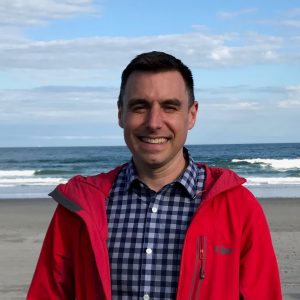
Nathan Vinhateiro (Ph.D. 2012) was recently appointed as a research associate professor in Marine Sciences at URI. In this position he will serve as the assistant director of URI’s Coastal Institute (CI), working to promote and support interdisciplinary coastal research at the university and among regional collaboratives convened through the CI. Nate will also join the Research Translation Core for the Sources, Transport, Exposure and Effects of PFASs (STEEP) Superfund Research Program, which is funded by the National Institute of Environmental Health Sciences and focuses on poly- and perfluoroalkyl substances (PFASs). Nate comes to the CI from RPS Ocean Science (formerly Applied Science Associates), where he has worked as a senior scientist and project manager for the last seven years. At RPS he led a wide range of consulting projects addressing coastal issues such as flooding, erosion and water quality, and also developed interactive applications to enable visualization and analysis of environmental data. His capacity to lead multi-agency and multidisciplinary projects will serve the CI well. CI Director Judith Swift noted, “Nate will be an asset to all of the CI Team’s initiatives and we look forward to the application of his skills and knowledge toward the enrichment of the CI’s mission.”
Elizabeth Harvey (Ph.D. 2013) won a 2019 Sloan Research Fellowship, a prestigious early-career scholar award. Harvey is now an assistant professor at the Department of Marine Sciences at the University of Georgia where she works on plankton ecology.
Brian M Covellone (Ph.D. 2014) is an Engineering Geologist with Santa Ana Regional Water Quality Control Board in Riverside, Calif.
Anna Malek Mercer (Ph.D. 2015) was recently named the new chief of the Northeast Fisheries Science Center’s Cooperative Research Branch located on URI’s Narragansett Bay Campus. Previously, Anna had been the executive director of the Commercial Fisheries Research Foundation. Talking about her new appointment, Anna said, “Science that is going to affect people’s lives is really what is attractive to me. If I am working to sustain fisheries, I am doing science that matters.”
Brita J. Jessen (Ph.D. 2016) is the research manager, Rookery Bay National Estuarine Research Reserve in Naples, Fla. She says it is a great place to visit (except it does get very warm there in the summer). She had a wonderful time coming up to R.I. this summer and visiting with her major professor, GSO professor Candace Oviatt (Ph.D. 1967).
At the spring 2019 New England Estuarine Research Society (NEERS) meeting held in York, Maine, several GSO alumni were recognized. The meeting started with a day-long Festschrift honoring Fred Short (M.S. 1976) on the occasion of his retirement from the University of New Hampshire. (See article in this issue.) Fred Short’s postdoctoral researcher, Blaine Kopp (Ph.D. 1999), who is the Louis Munro Chair of Environmental Studies at Kimball Union Academy, attended. The meeting was presided over by NEERS president and representative to the board of the Coastal and Estuarine Research Federation Susan Adamowicz (Ph.D. 2002). The Stickleback Award, given to the person who best conducts him or herself on the dance floor, attends the first talk the next morning, and has demonstrated service to NEERS, was given at this meeting to Walter Berry (Ph. D. 1987). Walter is the latest in a long list of GSO alumni who have won this award.
In Memorium
David L. Johnson (Ph.D. 1973) died unexpectedly on April 17, 2018. He was professor emeritus of environmental chemistry at State University of New York, College of Environmental Science and Forestry (ESF) in Syracuse, N.Y. In the summer of 2017 edition of the ESF newsletter, David had an article on making methane from food waste as an innovative way of recycling carbon. Condolences can be sent to his daughter, Amy Johnson, at amyndarrell@comcast.net.
Stephen Piotrowicz (Ph.D. 1977) passed away suddenly on April 2, 2018. Steve worked for NOAA for39 years as an oceanographer, rising to the level of deputy director. He was buried at sea outside of the New York City Harbor near the Statue of Liberty. Steve worked until his death as the program manager of the ARGO scientific float program that had over 3,000 floats collecting data around the world. He especially loved the South Pacific Ocean. A small amount of his ashes were placed into an ARGO float that was deployed near New Zealand. He will continue to collect ocean data in spirit for many years in his beloved South Pacific. Condolences can be sent to his sister, Catherine L. Iglewski, at bobandcatyah@yahoo.com

